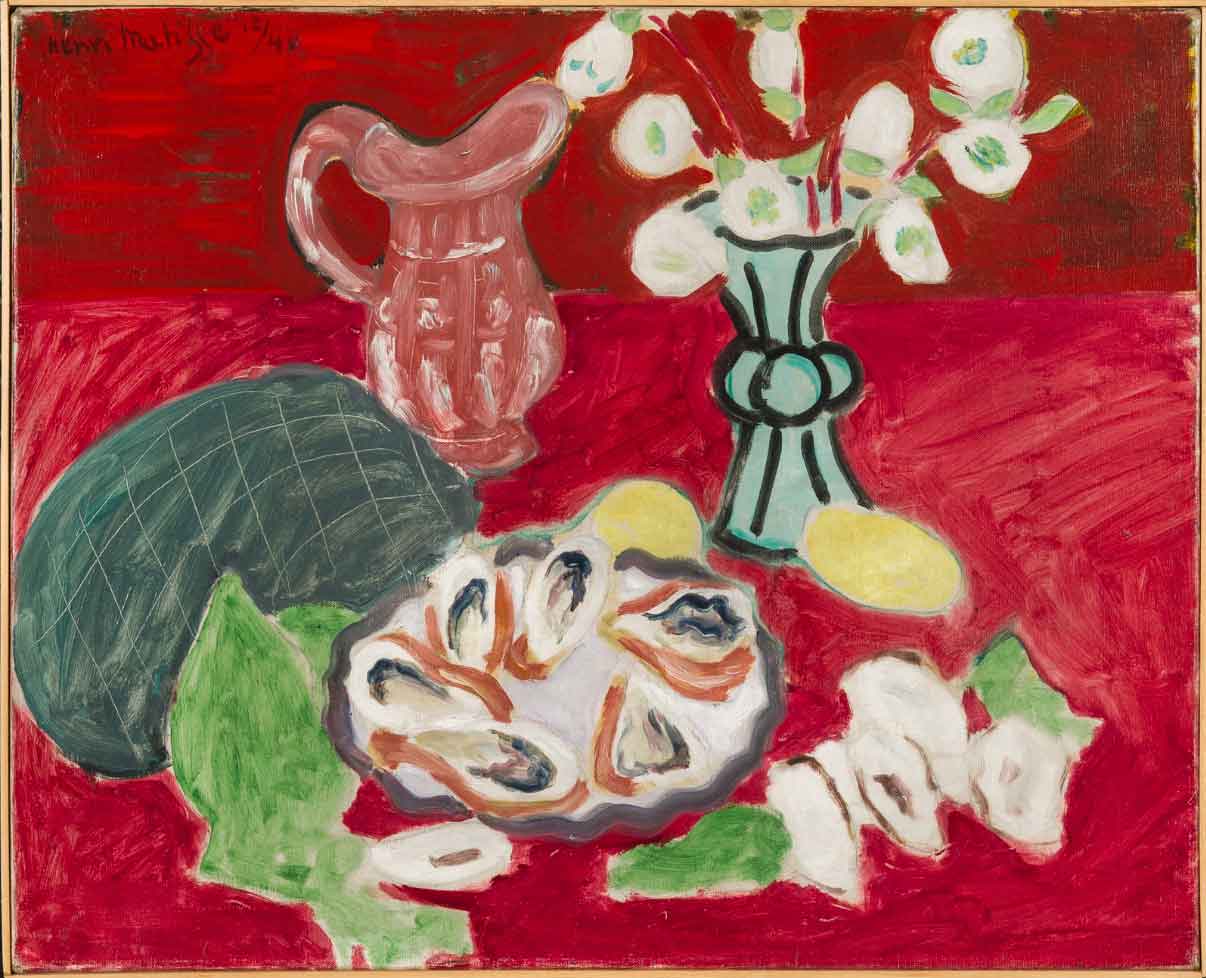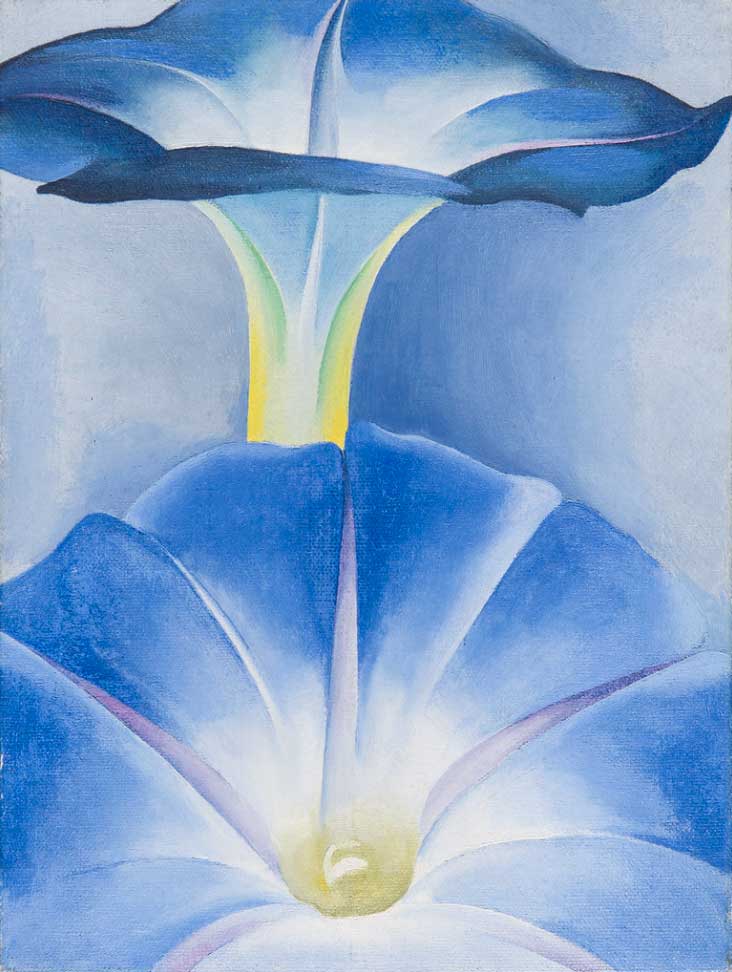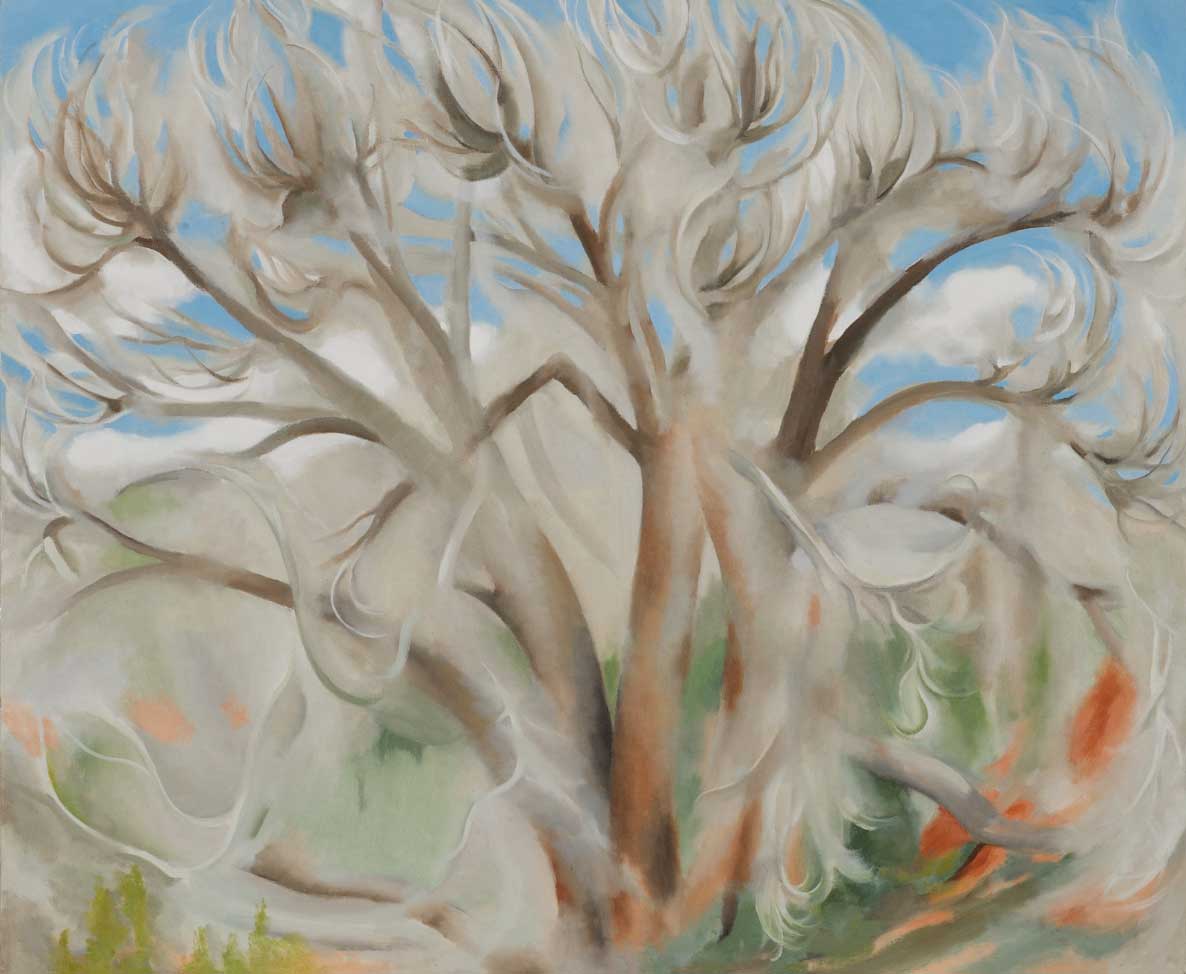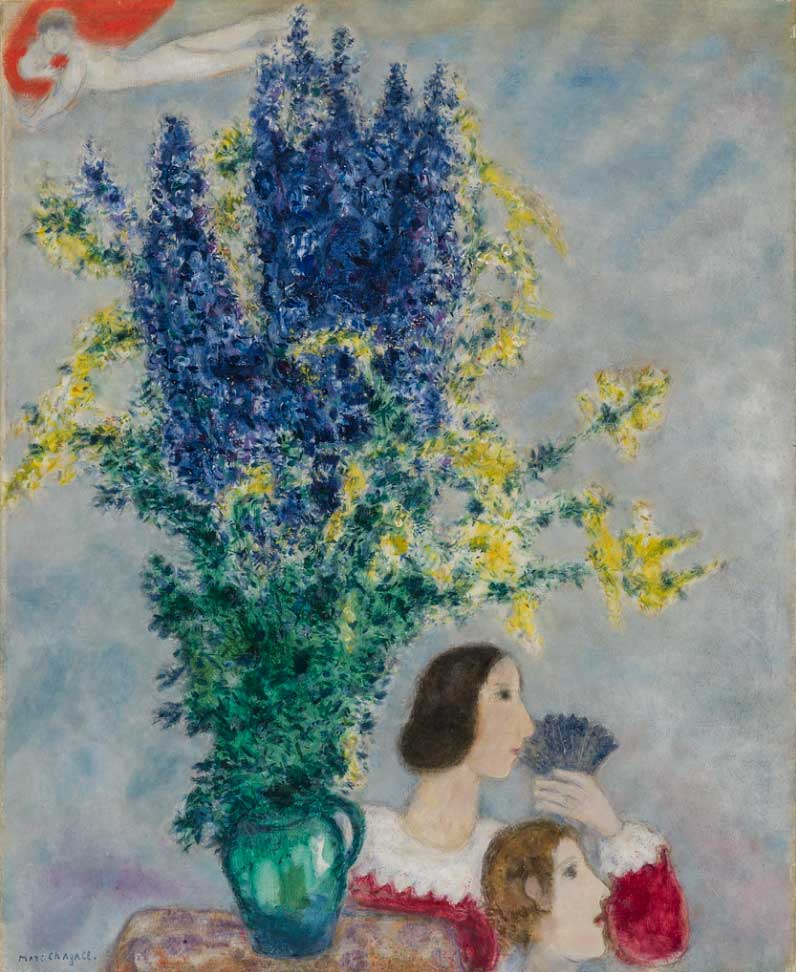Major Artworks Bequeathed to Frances Lehman Loeb Art Center by the Estate of Mary Pick Hines, Vassar ’53
October 27, 2022 - POUGHKEEPSIE, NY – The estate of the late Mary Pick Hines, Vassar class of 1953, has bequeathed four remarkable paintings to the Frances Lehman Loeb Art Center at Vassar College, and are now on display for the benefit of all visitors to view.
The paintings include:
- Flowers and Profile, 1930, by Marc Chagall
- Blue Morning Glories, New Mexico, II, 1935, by Georgia O’Keeffe
- Vase with Flowers and a Plate of Oysters, 1940, by Henri Matisse
- Cottonwood I, 1944, by Georgia O’Keeffe
In making the announcement, T. Barton Thurber, The Anne Hendricks Bass Director, said “These exceptional paintings build on existing strengths and fill in some of the gaps in the Loeb’s collection of early-twentieth-century American and European art. In particular, the addition of the two mid-career works by O’Keeffe now establishes Vassar as one of the largest academic repositories of the female artist’s paintings.”
Mary Pick Hines made many invaluable contributions to Vassar over the years and was a longtime supporter of the Loeb and a generous donor to the College. In recognition of her extraordinary support over many years, capped by the generosity of her bequest, the Loeb’s Atrium will now be known as the Mary Pick Hines Atrium. Hines served on the Board of Trustees from 1992 until 2004 and was Chair of the Friends of the Frances Lehman Loeb Art Center. She was also devoted to the Chicago Vassar Club and always raised significant funds from her class. These and her many, many other efforts on behalf of the College ultimately earned her a richly deserved Outstanding Service to Vassar Award.
Two other works were donated to the Loeb in her honor: Theodore Roszak, Staten Island, 1934, presented by the Friends of the Loeb in 2002, and a photograph by Toshio Shibato, Shimokitayama Village, Nara Prefecture, 2000, presented by Jim and Carol Kautz, class of 1955, also in 2002.
About the Frances Lehman Loeb Art Center
The Frances Lehman Loeb Art Center was originally established in 1864 as the Vassar College Art Gallery. The current 36,400-square-foot facility, designed by Cesar Pelli and named in honor of the new building’s primary donor, opened in 1993. Vassar was the first U.S. college founded with an art museum as a part of its original plans, and at any given time the galleries of the Loeb feature works from its extensive collections. The Loeb’s collections chart the history of art from antiquity to the present and comprise over 22,000 works, including paintings, sculptures, drawings, prints, photographs, and ceramics. Notable holdings include the Warburg Collection of Old Master prints, an important group of Hudson River School paintings given by Matthew Vassar at the College’s inception, and a wide range of works by major European and American 20th-century artists.
Admission to the Frances Lehman Loeb Art Center is free and all galleries are wheelchair accessible. The Loeb is open to the public every day from 10 a.m. to 5 p.m. (except Mondays) and Thursdays until 9 p.m., and is located at 124 Raymond Avenue near the entrance to the Vassar College campus. Parking is available on Raymond Avenue. Get directions to the Vassar campus.
The Loeb is also accessible via the Dutchess County Public Transit, Bus Route L. For additional information, the public may call (845) 437-5632 or visit the Loeb website.
Land Acknowledgement
We acknowledge that Vassar stands upon the homelands of the Munsee Lenape, Indigenous peoples who have an enduring connection to this place despite being forcibly displaced by European colonization. Munsee Lenape peoples continue today as the Stockbridge-Munsee Community in Wisconsin, the Delaware Tribe and the Delaware Nation in Oklahoma, and the Munsee-Delaware Nation in Ontario. This acknowledgment, however, is insufficient without our reckoning with the reality that every member of the Vassar community since 1861 has benefited from these Native peoples’ displacement, and it is hollow without our efforts to counter the effects of structures that have long enabled—and that still perpetuate—injustice against Indigenous Americans. To that end, we commit to build and sustain relationships with Native communities; to expand opportunities at Vassar for Native students, as well as Native faculty and other employees; and to collaborate with Native nations to know better the Indigenous peoples, past and present, who care for this land.
Vassar College is a coeducational, independent, residential liberal arts college founded in 1861.



